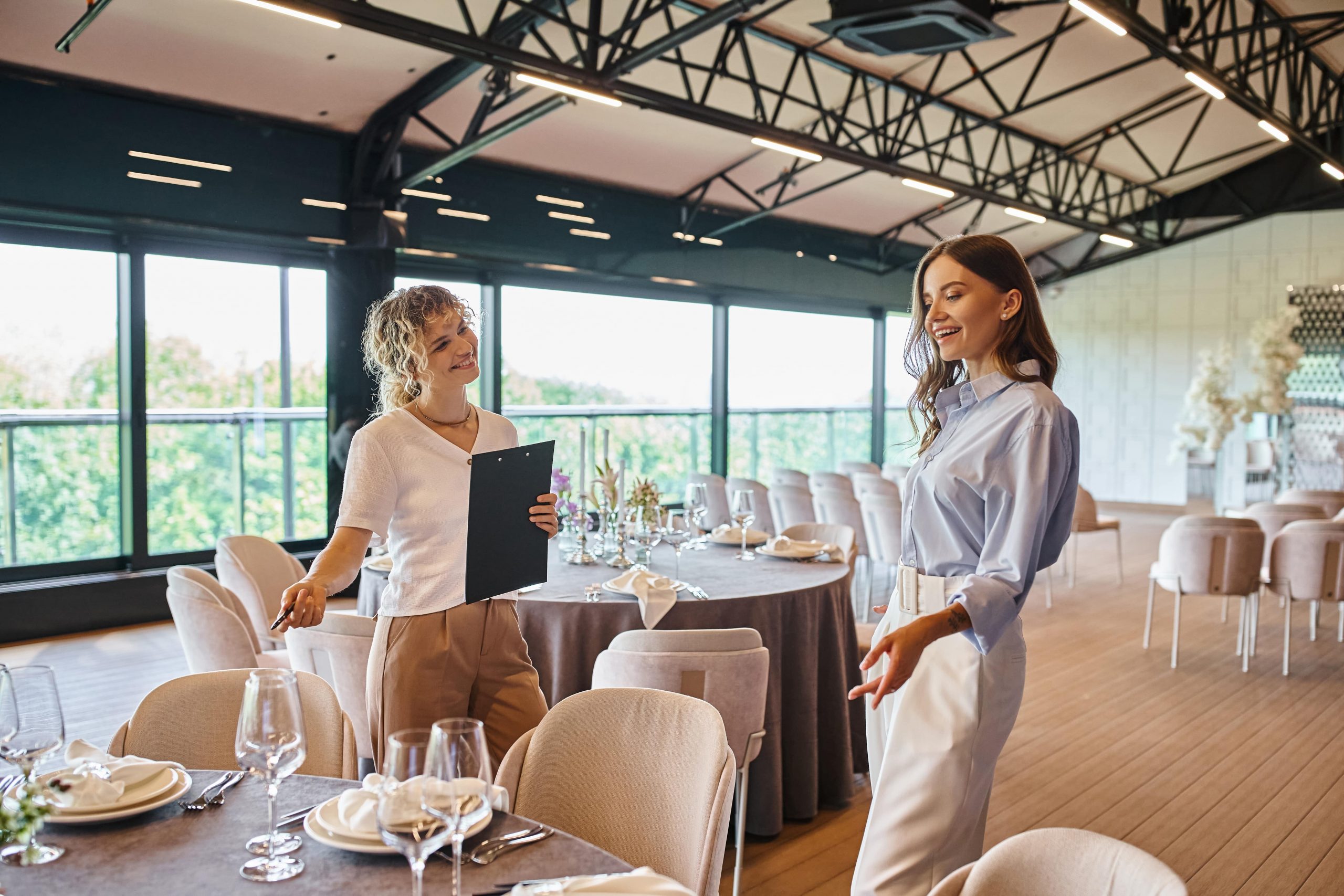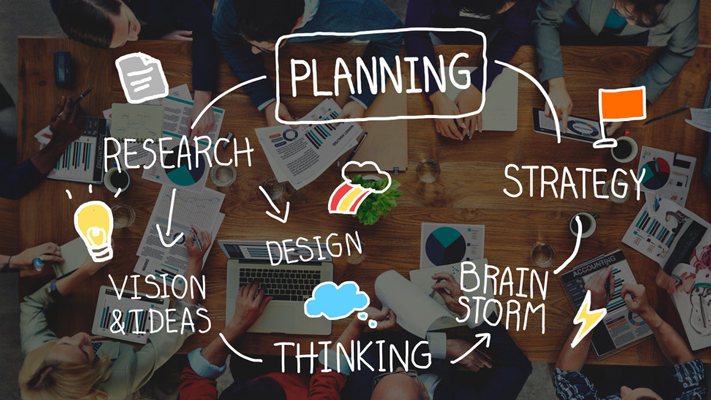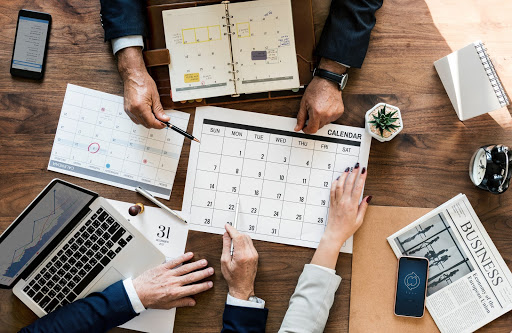Opening the Secrets of Successful Event Planning for Memorable Knowledge
Effective event planning requires a critical strategy that exceeds simple logistics. It entails a careful consideration of goals, audience, and styles. Coordinators should concentrate on developing tailored experiences that involve guests and foster connections. The path to accomplishing unforgettable occasions is typically filled up with obstacles. Understanding the nuances of efficient planning can disclose the possibility for absolutely impactful gatherings. What are the crucial elements that make an event memorable?
Specifying Your Event Goals and Goals
Clearness is crucial when specifying event objectives and purposes, as it establishes the foundation for an effective planning process. By verbalizing specific goals, event organizers can develop a clear direction and warranty that all initiatives straighten with the desired end results. Goals need to be obtainable and measurable, enabling coordinators to track progression and evaluate success successfully.
Determining the overarching purpose of the event, whether it is to educate, delight, or promote, plays a substantial function in forming each choice made throughout the planning phases. Stakeholders must be involved in this preliminary definition phase to gather diverse perspectives and promote a sense of possession.

Understanding Your Target market
Comprehending the audience is vital for efficient event planning. This entails determining target demographics and examining their preferences to customize the event experience. By gaining insight right into the target market's attributes and rate of interests, organizers can create much more interesting and relevant occasions.
Determining Target Demographics
Just how can event organizers assure their gatherings reverberate with participants? Identifying target demographics is crucial for crafting memorable experiences - event planning companies charlotte nc. Successful organizers start by conducting complete research to comprehend the age, interests, and preferences of their target market. This entails analyzing elements such as geographic location, cultural histories, and socioeconomic condition. By segmenting prospective participants right into distinctive groups, organizers can customize event components, including activities, styles, and places, to straighten with certain market attributes. Involving with possible participants with studies or social networks can give useful understandings right into their assumptions. Eventually, this targeted technique makes it possible for event coordinators to produce personalized experiences that foster link and interaction, ensuring that events not just fulfill yet go beyond the needs of their target market
Examining Audience Preferences
As soon as target demographics are recognized, the following step involves analyzing audience preferences to develop a truly interesting event experience. Recognizing what resonates with the audience is vital for customizing content, tasks, and overall environment. This process can be accomplished via surveys, social media sites understandings, and past event comments, which provide useful data on assumptions, rate of interests, and preferences. Event coordinators need to focus on key components such as favored themes, possible speakers, and wanted networking chances. Furthermore, watching on arising trends can assist in preparing for target market requirements. By leveraging this details, coordinators can design occasions that not only draw in attendees but likewise urge active involvement, ensuring a remarkable experience that aligns with target market wishes.
Crafting a Distinct Motif and Atmosphere
To produce a remarkable event, planners should initially define the event's function, as this fundamental action forms the overall experience. Aesthetic communication plays an important duty in developing a theme that resonates with guests, making each component of the decoration work sympathetically. Involving all detects better improves the atmosphere, making sure that visitors have an immersive experience that remains long after the event wraps up.
Specifying Your Event's Function
While lots of event organizers concentrate on logistics and guest lists, defining the event's function is crucial for crafting a distinct motif and ambience. Developing a clear objective permits organizers to align all elements of the event, from decoration to tasks, with a natural vision. This quality aids in choosing a style that reverberates with guests, making sure that the experience is both unforgettable and engaging. For instance, a corporate retreat may highlight team effort and advancement, while a wedding event may focus on love and celebration. By attentively thinking about the event's intent, planners can develop an environment that not only captures the significance of the celebration but also promotes meaningful links amongst visitors, enhancing the total experience.
Producing Visual Cohesion
Creating visual communication is crucial for changing an event right into a memorable experience, as it joins various aspects under a solitary, compelling motif. click here to read This process starts with a clear vision that overviews the selection of colors, style, and materials. Each part must reflect the overarching theme, whether it be a rustic wedding celebration or a corporate gala. Focus to information, such as matching table settings and signs, strengthens this unity. Lights plays a crucial role, boosting the atmosphere and highlighting crucial areas. Furthermore, including constant branding components, such as taglines and logos, solidifies the theme while producing a specialist touch. Inevitably, aesthetic cohesion not just mesmerizes guests but additionally cultivates a feeling of belonging and interaction throughout the event.
Involving All Senses
Engaging all detects is important for crafting a distinct style and atmosphere that reverberates with participants. Effective event organizers identify that Check Out Your URL including aesthetic, acoustic, olfactory, responsive, and gustatory aspects produces an all natural experience. Thoughtful decoration sets the visual tone, while very carefully curated songs includes an acoustic layer, improving the psychological ambience. Aromas, whether from floral arrangements or food stations, evoke memories and promote conversation. Responsive experiences, such as interactive installations or distinctive products, welcome guests to engage physically with the setting. Ultimately, using special food and beverage choices can tantalize palate, leaving a long lasting impression. By thinking about each feeling, event planners can create remarkable experiences that deeply get in touch with attendees, making certain that the event stays memorable long after it ends.
Handling Logistics and Budgeting
Effective event planning rests on the cautious administration of logistics and budgeting, as these aspects are fundamental for ensuring a seamless experience. A successful event calls for careful focus to detail in coordinating transport, venue option, and required tools. Coordinators have to evaluate the requirements of the event and develop an extensive list to take care of timelines successfully.
Budgeting plays a significant function in determining the range of the event. It entails not just allocating funds for every element yet additionally establishing and anticipating potential expenses aside contingencies. By prioritizing costs, coordinators can make informed choices on where to invest, whether in top notch suppliers or unique locations.

Engaging Guests Throughout the Event
How can event planners guarantee that guests stay astounded and entailed throughout the period of an occasion? Involving visitors needs a thoughtful blend of interactive aspects, entertainment, and individual links. Reliable event organizers include tasks that motivate engagement, such as real-time surveys, Q&A sessions, or hands-on workshops.
In addition, producing a lively environment with music, aesthetic screens, or themed style can improve the overall experience. Using chances for networking and social interaction fosters links amongst participants, making them really feel much more bought browse around these guys the event.
Strategic usage of technology, like event applications or social media assimilation, can keep visitors notified and engaged. Planning shock aspects, such as visitor audio speakers or enjoyment interludes, can additionally catch interest and keep interest. Inevitably, the essential hinge on balancing framework with spontaneity, ensuring that guests feel both delighted and engaged throughout the event.
Reviewing Success and Event Responses
What techniques can event organizers utilize to analyze the success of their events and gather important feedback? Coordinators typically make use of surveys and questionnaires distributed soon after the event to capture participants' impacts. These tools can be customized to determine fulfillment degrees relating to numerous aspects, such as location, audio speakers, and overall experience.
Furthermore, organizers may perform meetings or focus groups with choose individuals for even more extensive understandings. Social network tracking additionally gives a real-time snapshot of guests' views, as visitors frequently share their experiences online.
Assessing attendance numbers and involvement metrics can even more highlight areas of success and those requiring renovation. Ultimately, reviewing the event's objectives versus actual end results permits coordinators to determine successes and gaps, informing future events. By utilizing a mix of these methods, event organizers can collect comprehensive responses to enhance future gatherings.

Often Asked Concerns
How Do I Pick the Right Location for My Event?
Choosing the appropriate location includes assessing ability, area, access, services, and atmosphere. Additionally, considering spending plan restrictions and the event's objective ensures a suitable setting that satisfies attendees' demands and improves the overall experience.
What Should I Consist of in an Occasion Planning Timeline?
An occasion planning timeline should consist of essential landmarks, due dates for vendor reservations, budget assessments, place verifications, advertising schedules, staffing setups, and a checklist for day-of logistics to ensure a smooth execution of the event.
Just How Can I Properly Promote My Event?
To properly promote an event, one must utilize social media systems, involve local influencers, create captivating visuals, offer very early bird tickets, and maintain constant interaction through newsletters and targeted advertisements to reach a more comprehensive audience.
What Are Some Tips for Handling Final Adjustments?
To manage last-minute changes efficiently, one need to maintain clear communication with all stakeholders, prioritize jobs, remain flexible, and have contingency plans ready (event planning companies charlotte nc). Versatility and a tranquil disposition can substantially decrease anxiety throughout unanticipated circumstances
Just how Do I Handle Difficult Guests During the Event?

To develop a remarkable event, planners should first define the event's purpose, as this foundational step shapes the total experience. While numerous event planners concentrate on logistics and guest lists, defining the event's function is important for crafting a distinct motif and atmosphere. Successful event coordinators acknowledge that integrating aesthetic, acoustic, olfactory, tactile, and gustatory aspects creates a holistic experience. How can event planners assure that guests continue to be astounded and included throughout the duration of an event? Assessing the event's objectives against actual end results allows planners to recognize voids and successes, informing future occasions.